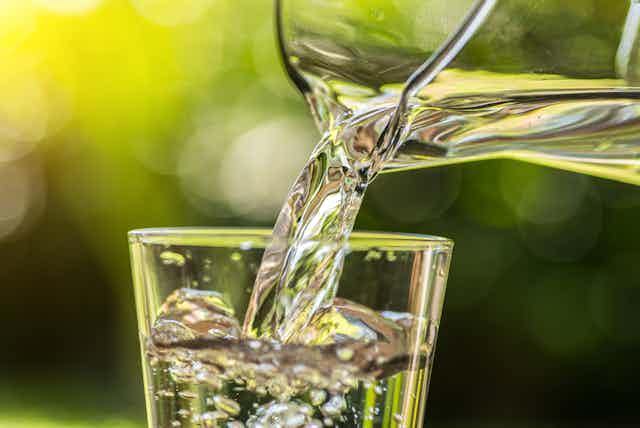A recent BMJ Case Report outlined the story of a 59-year-old woman who went to A&E after experiencing pain when urinating and abdominal pain. Her symptoms were consistent with urinary tract infection (UTI, commonly referred to by some as cystitis) for which she was prescribed antibiotics and painkillers. During her visit to the hospital, she vomited, became shaky, muddled and had difficulty talking. It transpired that she had consumed several litres of water throughout the day based on medical advice to drink lots of fluids that she recalled from previous experience of UTIs. Unwittingly, the patient brought about a dangerous condition known as acute hyponatremia which can progress to seizures, coma and even death, which is related to drinking too much fluid.
Hyponatremia is a clinical condition in which altered brain function is associated with very low sodium concentrations in blood serum (usually below 135 mmol/L) and brain swelling. The severity depends on the overall sodium level and the rate of decline, but the condition is a medical emergency. People at the highest risk of hyponatremia can include those with kidney, liver and endocrine diseases, although specific causes are often divided into those that occur with high, normal or low fluid volume.
When we consider that water is the medium in which chemistry plays out, it is not surprising that our bodies have evolved tightly controlled processes to regulate fluid balance and plasma concentrations of sodium within a normal range. Total body water and sodium are regulated independently. The extent to which hyponatremia can be brought about via excessive drinking with normal kidney function is not clear. But during infective illness, peeing less combined with consciously drinking more fluids – because that’s the received wisdom – could be dangerous.
Healthcare practitioners often encourage patients to “drink plenty of fluids” when they are unwell. Even the well are encouraged to drink lots of water to stay hydrated and keep healthy. Yet the rationale and evidence for these recommendations are equivocal. Timothy Noakes has spoken about the dangers of over-drinking in endurance athletes for some time, where the recommendation has been to drink as much as tolerable, and to drink before thirst.

Several deaths have been caused by exercise induced hyponatremia and excessive fluid intake, and similar concerns have been raised in sports where athletes undergo rapid weight-loss to “make weight”. In relation to UTIs, drinking plenty of water is thought to help flush bacteria out of the urinary tract via diuresis (the excessive production of urine). Other potential mechanisms include maintenance of optimal urine pH and reducing the available surface area on which bacteria can thrive due to a shrinking effect on the bladder brought about by more frequent urination. However, evidence for these associations are conflicting.
The European Food Safety Agency recommends a daily total fluid intake of 2.5 litres for men and a couple of litres for women. It is worth noting that this includes water from all beverages and moisture content of foods (so not simply plain water) and will vary widely between different countries, depending on climate. A person’s fluid needs also depend on how physically active they are.
Water is clearly essential and we tend to think that more is better. Physiologically, though, this is not always the case and it is quite reasonable to consider that excessive fluid intake could have no effect at all, or could in fact be harmful. Drinking more than the body needs is not necessarily wise and, although rare, given the potential catastrophic results of hyponatremia there is a need for further research to identify risks and benefits of frequent drinking so that we can have more precise drinking guidelines.
Using exercise as an example, and to echo Noakes, it is not clear why drinking guidelines for the most intellectual of mammals should be so different. We have a feedback mechanism that has been shaped by evolution: thirst. Whether it is beneficial to drink beyond thirst when you have an infection remains speculative. As others have pointed out, even a simple pragmatic study design comparing antibiotics and high water intake with antibiotics alone, could provide evidence of an effect over a short time-frame.
Fortunately, in the instance outlined in the BMJ Case Report the patient’s hyponatremia was rapidly identified and successfully treated with simple fluid restriction. But given the scarcity and inconsistency of the available experimental and clinical data on drinking guidelines, attempts to address this dearth of information should be embraced.

